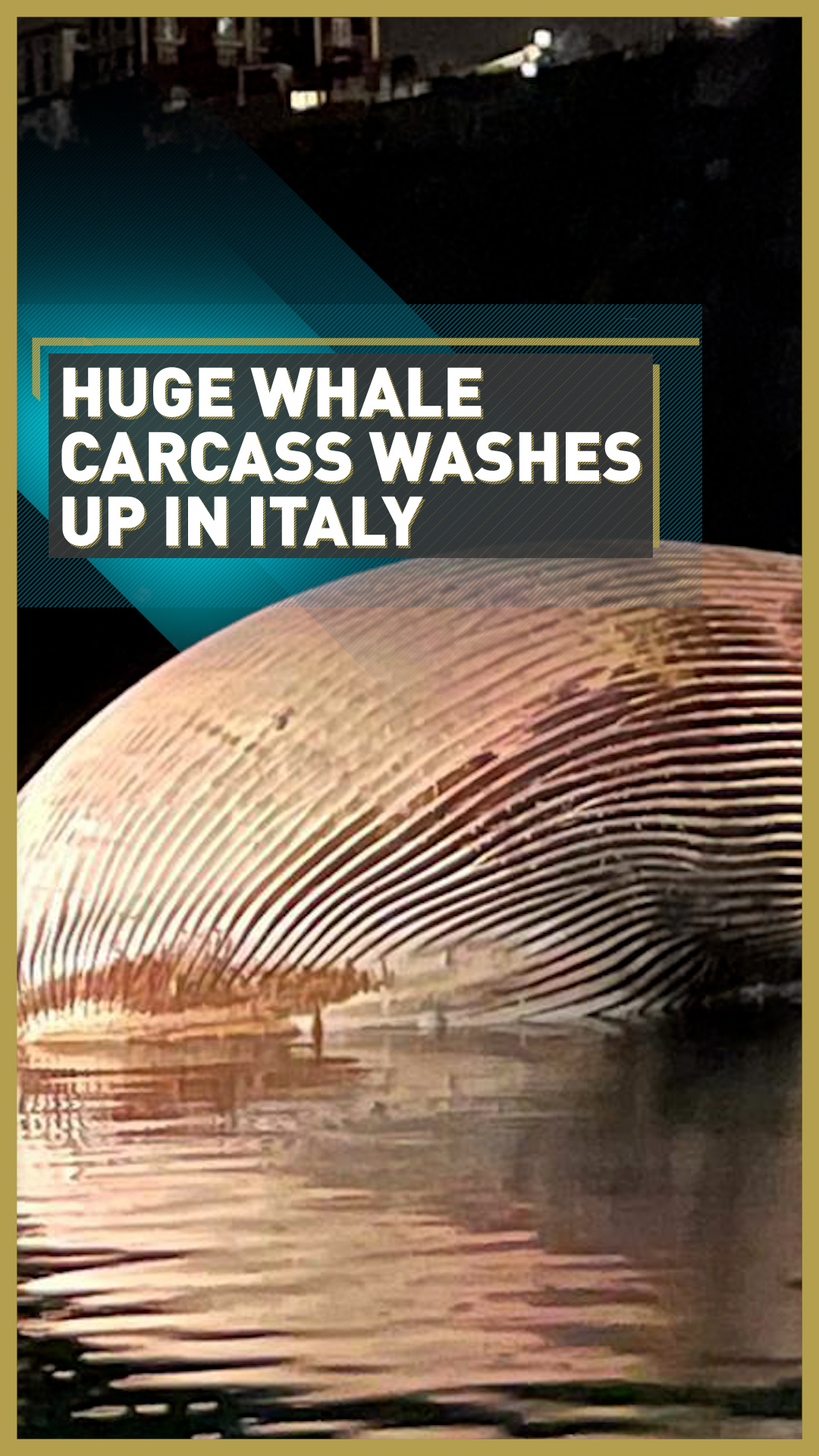00:44

A whale carcass, suspected to be one of the largest ever found in the Mediterranean, has been recovered off the coast of Southern Italy.
Coastguard scuba divers located the whale close to the harbor of Sorrento, near Naples, on Sunday. They were first alerted to the massive mammal after noticing a young whale calf that was in distress, said officials.

The Italian Coastguard became aware of the whale after noticing a whale calf swimming in the waters by Sorrento.
/Guardia Costiera
The Italian Coastguard became aware of the whale after noticing a whale calf swimming in the waters by Sorrento.
/Guardia Costiera

The whale carcass is one of the largest ever to wash up in the Mediterranean, weighing 70-tons. /Guardia Costiera
The whale carcass is one of the largest ever to wash up in the Mediterranean, weighing 70-tons. /Guardia Costiera

The whale caracass is to undergo an autopsy to examine how the mammal may have died. /Guardia Costiera
The whale caracass is to undergo an autopsy to examine how the mammal may have died. /Guardia Costiera

The whale skeleton is expected to go on display in a museum. /Guardia Costiera
The whale skeleton is expected to go on display in a museum. /Guardia Costiera
Soon after they found the animal, its body floated to the surface. An operation to recover the 70-ton carcass involved two vessels and took several days.
The whale was transported to Naples on Wednesday, where it will undergo an autopsy. There are plans for the gigantic skeleton to be put on display in a museum.
The coastguard service is also monitoring the waters for further signs of the young whale calf, which brought their attention to the large whale carcass before disappearing back into the sea.

Whales can wash up on shores for a variety of reasons.
Sometimes they become exhausted, because they have not eaten enough due to illness or the food they have been living off has not provided them with sufficient energy. They can also become injured, which is a common reason for any animal being found stranded.
Experts also say that navigational mistakes can lead to whales becoming stranded – particularly if they are in unfamiliar waters with different coastlines and shallow seabeds. Scientists say warming waters also lead to whales migrating and finding themselves in completely different oceans.
If there is a large group of whales washed up on shore, it is most likely due to a follow-the-leader mentality. If a pilot whale goes wrong or is sick, it is still likely that others in the group will continue to follow on the same journey.
Video editor: Natália Luz

